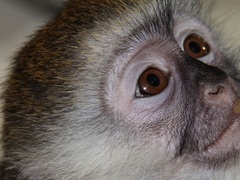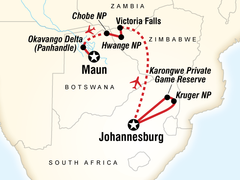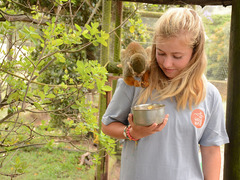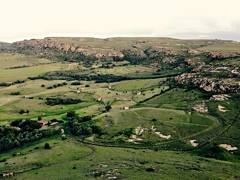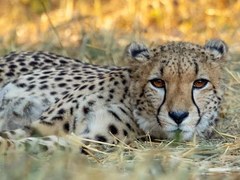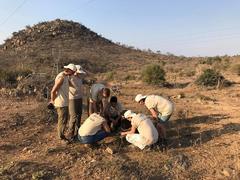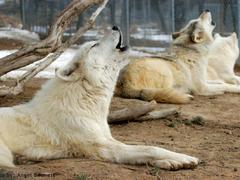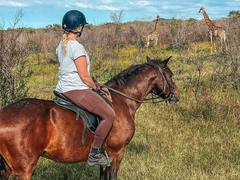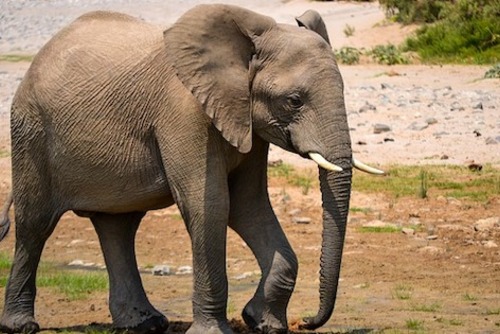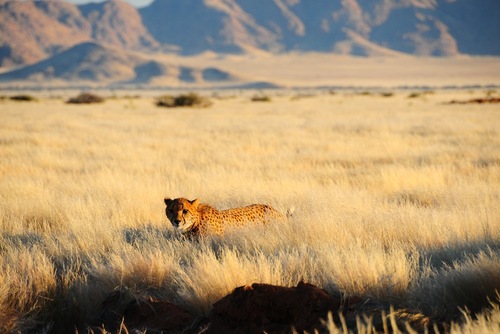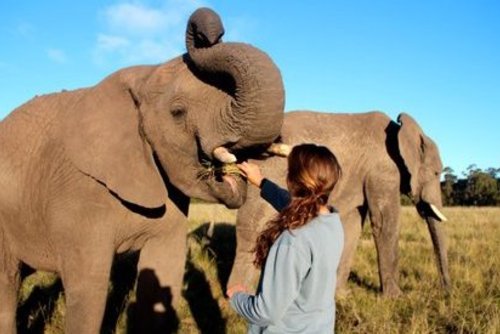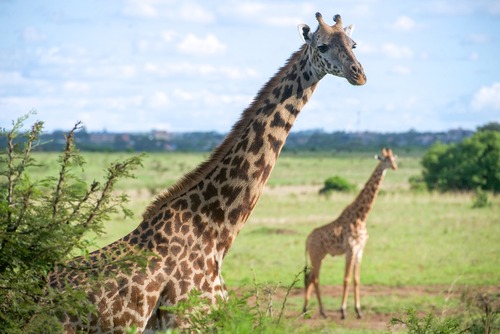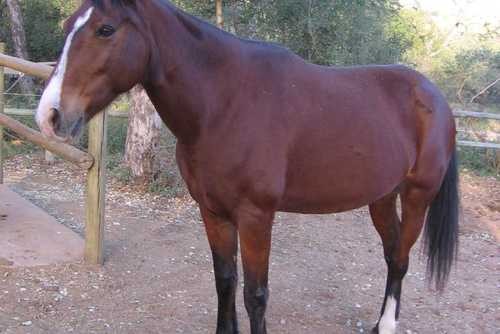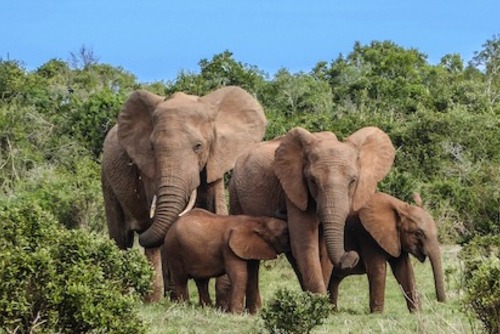Occasionally nature conservation brings in some human-wildlife conflict animals who are cared for and released once they are back in good health. Our expertise to look after wildlife has come from working with several wildlife vets and other centres earlier on. We are always available to help and assist if the demand is there as the care for the sick and young is not an easy task.
One of our main focus points is our volunteer program. Other than the farm work that is always on going and improves the farm and the wild animals welfare with the work the volunteers do, is education is a vital point of the program. We work very hard to educate volunteers on the plight of endangered species and the environment as a whole. We find that the interaction with our ambassador cheetah gives individuals a memorable experience and we have found that this allows our volunteers to gain a deeper understanding, love and appreciation for the animals that they are working with.
Our program includes the following: feeding of all the animals on the farm which includes the preparation of the food, cleaning of enclosures, assist in the training and care of ambassador cheetahs, game capture, daily maintenance of the farm such as enclosure maintenance, relocating animals to new enclosures, revamping enclosures, ongoing enrichment for all our animals.
This is not limited to these tasks as we are a working farm and up keep is endless. Game counts (on the 856ha farm we have free roaming giraffe, zebra, kudu, ostrich, impala, sable, hartebeest, wildebeest, eland and warthogs), are also an important part of volunteer work and is coupled with animal identification and part of the learning process for them. We have introduced giraffe identification as part of the program which involves the volunteers photographing the giraffes and identifying them via special marks they can see. This data will then be captured for each giraffe.
When we do suppliment feed, the volunteers are the ones to put out the feed for our free roaming game. We pride ourselves that our volunteers are hands on with everything and are educated in conservation matters facing these endangered species. We find the hands-on, ethical approach to be the most rewarding for our volunteers and they go away with a sense of accomplishment and an eagerness to conserve. As our environment is under huge pressure, our volunteers like to walk down to the dining area in the mornings-this lessens their carbon footprint and immerses them into nature; a walk they thoroughly enjoy.
Many of our volunteers have left our facility having a new outlook on life and have pursued studies in conservation related fields due to their experiences. Our facility is is deeply rooted in the educational experience and firmly believes that without education there can be no conservation.


